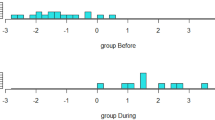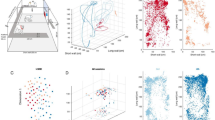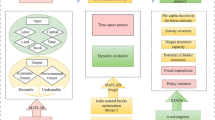Abstract
As several persons seem interested in Mr. Wallace's suggestion that animals find their way home by recognising the odour of the places which they have passed whilst shut up, you may perhaps think the following little fact worth giving. Many years ago I was on a mail-coach, and as soon as we came to a public-house, the coachman pulled up for the fraction of a second. He did so when we came to a second public-house, and I then asked him the reason. He pointed to the off-hand wheeler, and said that she had been long completely blind, and she would stop at every place on the road at which she had before stopped. He had found by experience that less time was wasted by pulling up his team than by trying to drive her past the place, for she was contented with a momentary stop. After this I watched her, and it was evident that she knew exactly, before the coachman began to pull up the other horses, every public-house on the road, for she had at some time stopped at all. I think there can be little doubt that this mare recognised all these houses by her sense of smell. With respect to cats, so many cases have been recorded of their returning from a considerable distance to their homes, after having been carried away shut up in baskets, that I can hardly disbelieve them, though these stories are disbelieved by some persons. Now, as far as I have observed, cats do not possess a very acute sense of smell, and they seem to discover their prey by eyesight and by hearing. This leads me to mention another trifling fact: I sent a riding-horse by railway from Kent viâ. Yarmouth, to Freshwater Bay, in the Isle of Wight. On the first day that I rode eastward, my horse, when I turned to go home, was very unwilling to return towards his stable, and he several times turned round. This led me to make repeated trials, and every time that I slackened the reins, he turned sharply round and began to trot to the eastward by a little north, which was nearly in the direction of his home in Kent. I had ridden this horse daily for several years, and he had never before behaved in this manner. My impression was that he somehow knew the direction whence he had been brought. I should state that the last stage from Yarmouth to Freshwater is almost due south, and along this road he had been ridden by my groom; but he never once showed any wish to return in this direction. I had purchased this horse several years before from a gentleman in my own neighbourhood, who had possessed him for a considerable time. Nevertheless it is possible, though far from probable, that the horse may have been born in the Isle of Wight. Even if we grant to animals a sense of the points of the compass, of which there is no evidence, how can we account, for instance, for the turtles which formerly congregated in multitudes, only at one season of the year, on the shores of the Isle of Ascension, finding their way to that speck of land in the midst of the great Atlantic Ocean?
This is a preview of subscription content, access via your institution
Access options
Subscribe to this journal
Receive 51 print issues and online access
$199.00 per year
only $3.90 per issue
Buy this article
- Purchase on SpringerLink
- Instant access to the full article PDF.
USD 39.95
Prices may be subject to local taxes which are calculated during checkout
Similar content being viewed by others
Rights and permissions
About this article
Cite this article
DARWIN, C. Perception in the Lower Animals. Nature 7, 360 (1873). https://doi.org/10.1038/007360c0
Issue date:
DOI: https://doi.org/10.1038/007360c0
This article is cited by
-
The lobster navigators
Nature (2003)



